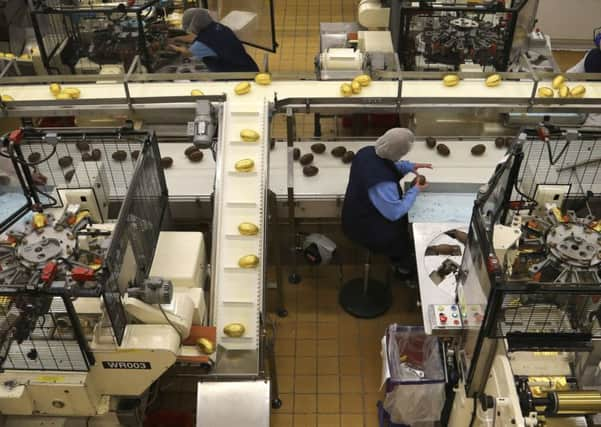June Smith: Manufacturing mood is still upbeat in region


Speaking to manufacturers exhibiting at the Made in Yorkshire Exhibition in Leeds last week, businesses are still telling me they are feeling confident about the future. Growth ambitions vary, some are more modest, whilst others feel confident that up to 75 per cent growth can be achieved in a three-year period in spite of any Brexit uncertainties. A Leeds based manufacturer is already reporting their highest ever sales volumes, with sales in the last eight months 78 per cent up on last year!
Whilst Europe continues to be the region’s biggest export market, and at a time when the Prime Minister Theresa May is extolling the benefits of seeking new sources of commerce and free trade among Commonwealth countries in the aftermath of Brexit, I’m also hearing reports about enquiries emerging from new markets.
Advertisement
Hide AdAdvertisement
Hide AdA regional manufacturer in the medical sector is poised to take advantage of new opportunities at a hospital in Uganda, which has come about from a marked increase in infrastructure investment in African markets.
That said, there are a number of challenges for manufacturers in realising the sector’s growth aspirations, with productivity remaining a key issue. Many in the sector admit that productivity has flatlined at 1 per cent per year.
There is evidence to suggest that good management practices appear to result in higher productivity. I have been talking to a Bradford-based engineering business that has made a considerable investment in leadership and frontline management programmes. This investment in efficient management programmes and their ensuing positive culture change, has resulted in a 40 per cent growth in turnover in 2018 compared to 2016.
Leeds-based manufacturer MPM Composites, whose factory was burnt to the ground in February 2018, illustrates the strong correlation between management practices and labour productivity in this labour intensive business.
Advertisement
Hide AdAdvertisement
Hide AdSpeaking at Made in Yorkshire, Ben Wilson, managing director at MPM, reported that the business is now turning over 100 per cent of their 2017 weekly average, and is on a growth trajectory at their new Bramley site, having already acquired two new customers in just 14 weeks after the fire.
Attributing their astounding comeback to having strong relationships and good communication across the breadth of the business and with customers and suppliers, Ben said: “I had confidence because we had invested in systems (ISO and CRM systems, backed up off-site). We also invested in plans (business coaching and disaster planning) and ultimately built a strong team culture throughout the business. I know we survived because of the dignity, persistence and grit of my whole team.”
Skills availability continues to be another key challenge for manufacturers, which coupled with a shortage of local grow-on business space, is increasingly impacting on growth plans. Manufacturers are reticent to move out of an area for fear of losing valuable employees.
The adoption of digitalisation or Fourth Industrial Revolution technologies, as a tool to make productivity improvements, are becoming more widely adopted across the region as a whole. We are seeing increased take-up of robotics and we are working with a local software systems provider who have developed a simple cloud based, low cost model.
Advertisement
Hide AdAdvertisement
Hide AdThe region is keeping a close eye on Brexit developments, and there is some evidence to indicate that the manufacturing sector is planning for future change to mitigate any negative Brexit effect. Rising import costs are increasingly passed on to the customer, with up to 10 per cent price increases being accepted and manufacturers are taking steps to retain their competitive advantage through reshaping their businesses.
Whilst the diversity of Yorkshire’s manufacturing sector makes a ‘one size fits all’ commentary impossible, evidence of the resilience and agility within the sector gives me confidence that the manufacturing decision makers within the region are starting to make the changes that will be required to future proof their businesses.